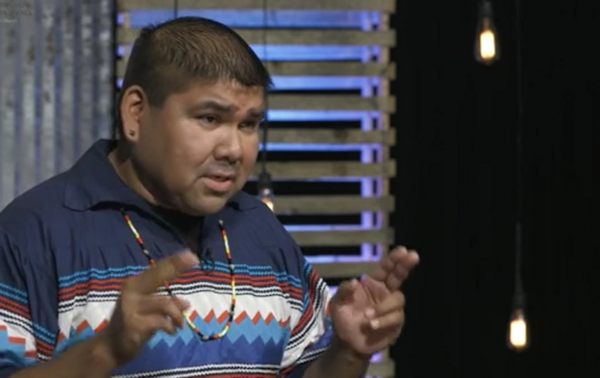A video and study guide presented by the General Commission on Religion and Race.
The Rev. Glen Chebon Kernell Jr. is the executive secretary of Native American and Indigenous Ministries of the General Board of Global Ministries of the United Methodist Church. At the 2016 Michigan Annual Conference, Rev. Kernell facilitated the Act of Repentance and Reconciliation with Indigenous People.
That Act last June was not meant as an end but as a beginning. This video study in the Vital Conversations Series presented by the General Commission on Religion and Race, Rev. Kernell reviews the call to the church to participate more vigorously in ongoing acts of repentance.
This reminder is especially timely when set against the ongoing concerns around the Dakotas Access Pipeline, which is not only about water safety but about tribal homeland, by treaties going back to the mid-1800s.
STUDY GUIDE
Check-in
Ask about everyone’s week, along with prayer requests for joys and sorrows.
Open with Prayer
Introduction to the Ongoing Acts of Repentance Video
Reverend Chebon Kernell calls the church to participate more vigorously in ongoing acts of repentance, justice making and truth telling about the historical and continuing impact of racism, specifically on Native American and indigenous people.
Discussion Questions:
1. What is the United Methodist Acts of Repentance movement? How have various groups, particularly indigenous people, reacted to this movement?
2. What forms of racism have indigenous people encountered? What is the meaning of “love thy neighbor as thyself,” particularly for indigenous communities and people confronted by racism?
3. What is some of the history of racism against indigenous people? What has this racism meant to indigenous languages? Does history impact us today? What is the impact of spiritual violence?
4. What has your annual conference, district, congregation, or ministry done to follow up on the 2012 Acts of Repentance? If your group is not familiar with the “Acts,” what can you do to learn more and inform others in your ministry context?
5. Some non-Native persons ask, “How many times do we have to apologize? When will you be satisfied?” What should be the church’s response to these questions?
6. How does working against racism and for justice connect to our Christian discipleship?
Closing Prayer in Unison
Light a candle as a reminder of the Holy Spirit’s presence.
Lord Jesus, we humbly come to You repenting of our sins. Let us hear and support our indigenous sisters and brothers who are suffering because of a long history of racism that impacts all of us today. In our relationship with the indigenous community, let repentance move to meaningful action. Amen.
Last Updated on March 20, 2017

